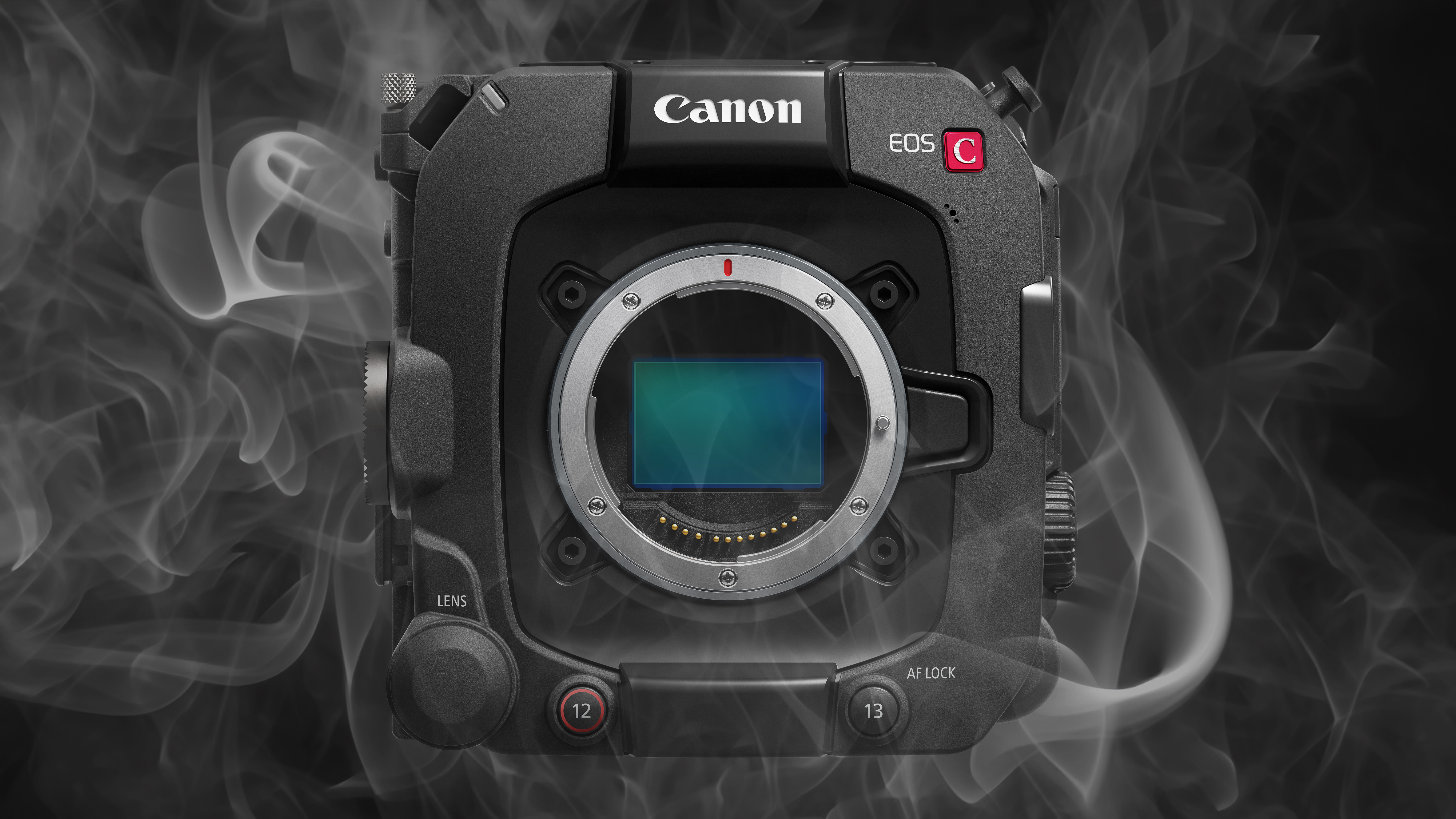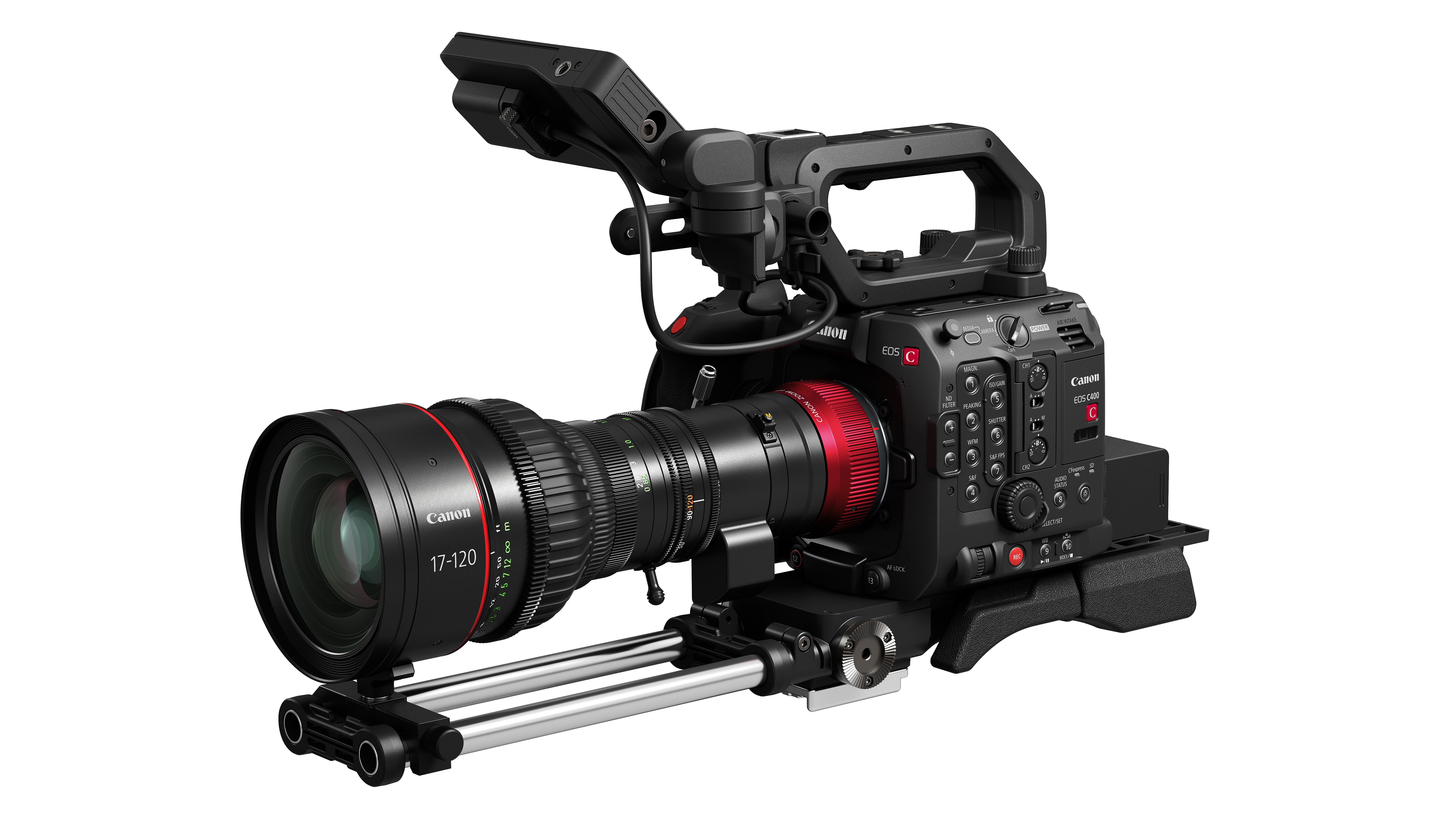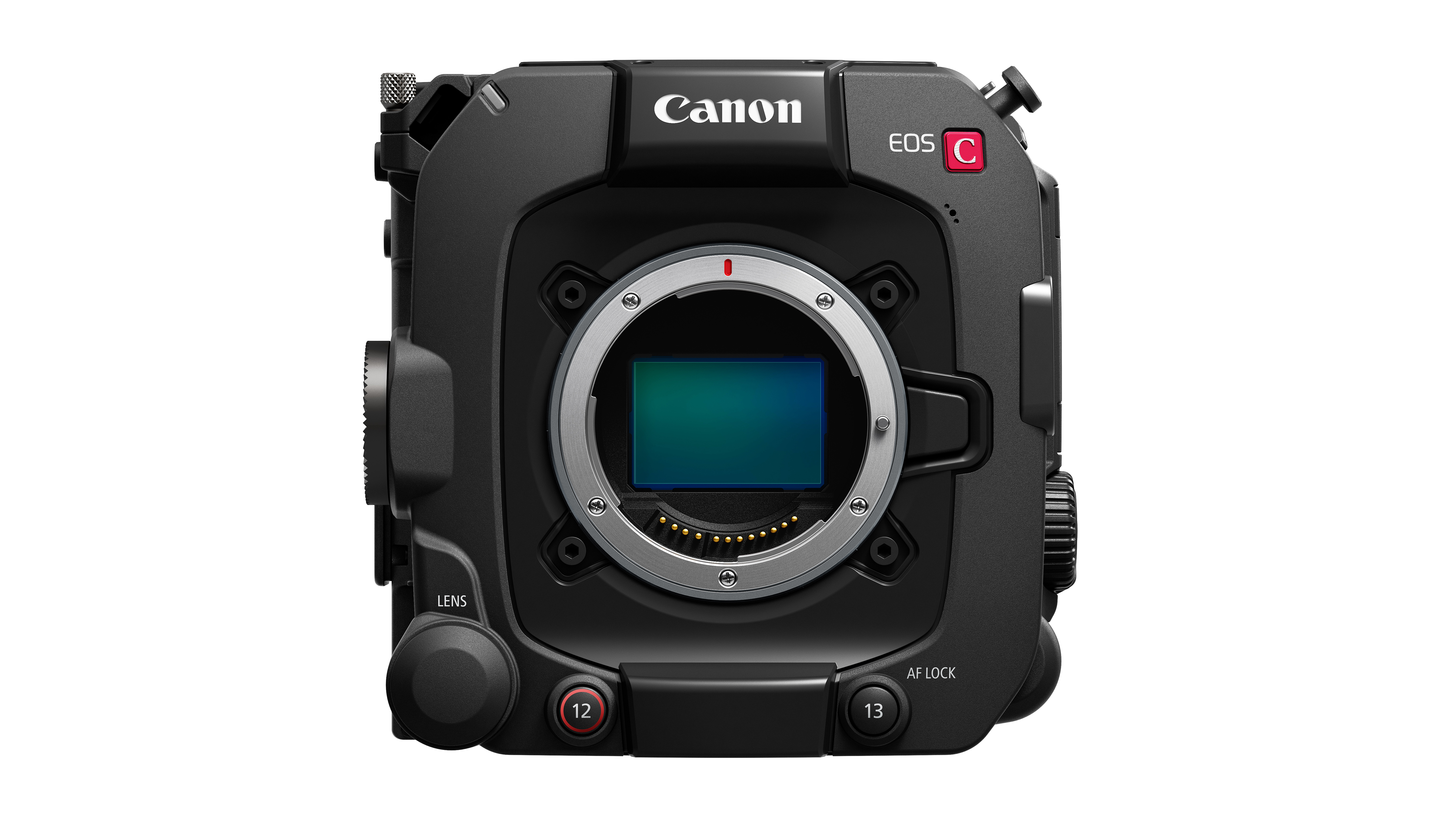WHOA! Canon's new camera is nothing short of a mic drop
The new Canon camera is an absolute mic drop, offering full-frame 6K 60p 12-bit video, VR support and TRIPLE-base ISO!

The best camera deals, reviews, product advice, and unmissable photography news, direct to your inbox!
You are now subscribed
Your newsletter sign-up was successful
Canon has just dropped a bombshell on the world of cinema cameras with the Canon EOS C400 – its first full-frame RF mount cine camera, offering 12-bit 6K 60p, triple-base ISO (yes, really), Dual Pixel CMOS Autofocus II and support for 180° VR video.
Fascinatingly, the Canon EOS C400 was first rumored a decade ago as a new model to sit alongside the C300 Mark III and C500 Mark II. While it technically sits below the C500 series, its specs are definitely streaks ahead of its older brother.
Canon EOS C400 specs
The EOS C400 features a newly developed, back-side illuminated, full-frame 6K sensor. It's capable of RAW recording up to 6K 60p, 4K 120fps and 2K 180fps in Canon's 12-bit Cinema RAW Light format.
It also offers Canon's own XF-AVC codec for uncropped 10-bit 4:2:2 capture up to 120p, oversampled from 6K, along with two new codecs: XF-AVC S and XF-HEVC S (with an "easy-to-manage naming system and folder structure, while recording in the familiar MP4 format and preserving metadata").
Recording options aside, arguably the sensor's most amazing trick is the introduction of triple-base ISO – leapfrogging the conventional dual-native ISO technology seen in other video-oriented cameras.
This enables the C400 to shoot at base ISOs of 800, 3200 and 12800 to offer an incredible dynamic range spectrum.
With a full-fat CFexpress Type B slot and a standard SD card slot, the C400 enables you to record in RAW to the former while offering sub-recording and proxy options to the latter.
The best camera deals, reviews, product advice, and unmissable photography news, direct to your inbox!
The 12-pin connection offered by the RF mount (the EF mount only had 8 pins) enables the Canon EOS C400 to take full advantage of broadcast and Cine-Servo lenses.
It also boasts a full-size HDMI port, mini-XLR inputs, DIN connectors (for timecode, genlock and return video), 12G-SDI and 3G-SDI monitor outputs, ethernet connection and a variety of other in and output interfaces.
The camera also features integrated Wi-Fi connectivity along with support for video and audio IP streaming via SRT. Remote control is available via Canon's RC-IP100 or RC-IP1000 controllers, the Canon Multi-Camera Control app or browser remotes.
All this signifies the company's full weight being thrown behind the RF mount when it comes to cinema cameras, following the baby steps taken by the Super35 EOS C70 and hybrid EOS R5 C. It's a brave but necessary step, moving away from the industry standard EF mount.
The Canon EOS C400 will be available in September for $7,999 / £7,799 / AU$13,500 . Unlike other Cinema EOS cameras, which have been offered in PL mount, a dedicated PL to RF lens adapter is going to be sold for $1,599 / AU$2,600.
You might be interested in the best Canon cameras across all categories, including some of the best DSLRs and best mirrorless cameras.

James has 25 years experience as a journalist, serving as the head of Digital Camera World for 7 of them. He started working in the photography industry in 2014, product testing and shooting ad campaigns for Olympus, as well as clients like Aston Martin Racing, Elinchrom and L'Oréal. An Olympus / OM System, Canon and Hasselblad shooter, he has a wealth of knowledge on cameras of all makes – and he loves instant cameras, too.



